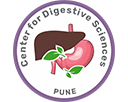Overview
A gastrointestinal stromal tumor (GIST) is a type of tumor that occurs in the gastrointestinal tract, most commonly in the stomach or small intestine. This type of tumor is thought to grow from specialized cells found in the gastrointestinal tract called interstitial cells of Cajal (ICCs) or precursors to these cells. Affected individuals can develop one or more tumors. GISTs are usually found in adults between ages 40 and 70; rarely, children and young adults develop this type of tumor.
Small tumors may cause no signs or symptoms. However, some people with GISTs may experience pain or swelling in the belly area (abdomen), nausea, vomiting, loss of appetite, or weight loss. Sometimes, tumors cause bleeding into the gastrointestinal tract, which may lead to low red blood cell counts (anemia) and, consequently, weakness and tiredness. Bleeding into the intestines may cause black and tarry stools, and bleeding into the throat or stomach may cause vomiting of blood.

Causes
The exact cause of GISTs isn’t known, though they seem to be related to a mutation in the expression of the KIT protein. Cancer develops when cells begin to grow out of control. As the cells continue to grow uncontrollably, they build up to form a mass called a tumor. GISTs start in the GI tract and can grow outward into nearby structures or organs. They frequently spread to the liver and peritoneum (the lining of the abdominal cavity) but rarely to nearby lymph nodes.
Symptoms
- bloody stools
- pain or discomfort in the abdomen
- nausea and vomiting
- bowel obstruction
- a mass in the abdomen that you can feel
- fatigue or feeling very tired
- feeling very full after eating small amounts
- pain or difficulty when swallowing
Treatment
The options for treating GISTs depend on whether the tumor can be surgically removed or if the cancer has metastasized (spread) to other parts of your body. There are four standard types of GIST treatment:
- Surgery. If the GIST hasn’t spread and it’s safe to do so, a healthcare professional may surgically remove the tumor and some surrounding tissue. A thin, lighted tube called a laparoscope may be used to make incisions and remove tissues.
- Targeted therapy. Your doctor may prescribe drugs such as tyrosine kinase inhibitors (TKIs), which block signals for tumors to grow. These drugs are less harmful to healthy cells than chemotherapy or radiation.
- Watchful waiting. A healthcare professional will monitor your condition but won’t prescribe treatment until there’s a change in your symptoms or signs.
- Supportive care. To help improve your quality of life, you may receive supportive care if your GIST gets worse or you have side effects from treatments.
Diagnosis
- CT or CAT scan. This procedure takes specialized X-rays that provide detailed views of your GI tract.
- MRI scan. As you lie still in an enclosed area, a magnet and radio waves make detailed images of your GI tract.
- Upper endoscopy. An endoscope, a thin instrument with a light and lens, is inserted through your mouth into your upper GI tract, allowing your organs to be visually examined.
- Endoscopic ultrasound (EUS). This procedure uses an endoscope with a probe that bounces ultrasound waves off your organs. This causes echoes that create a sonogram, an image of your body tissues.
- Endoscopic ultrasound fine-needle aspiration (EUS-FNA) biopsy. By using an endoscope with a fine needle attached to it, your doctor can remove a small amount of tissue from the tumor for a biopsy.
Book Your Appointment Today
Book your appointment with Dr. Ujwal Zambare he is having 12 years of experience in Gastro-intestinal surgery, oncology, minimally invasive surgery and Liver, Pancreas, Biliary tract surgery.

Dr. Ujwal Zambare
MBBS, MS (General Surgery), DNB (Gastrointestinal Surgery)
Fellowship in Minimal Access Surgery
Copyright © 2021. Dr. Ujwal Zambare – Liver, Pancreas, Biliary Tract Surgery Specialist in Pune. | All Rights Reserved.
All Text and Images is for information of Patients and Public and doesn’t replace medical practitioners advice. Visit doctor for medical advice.



